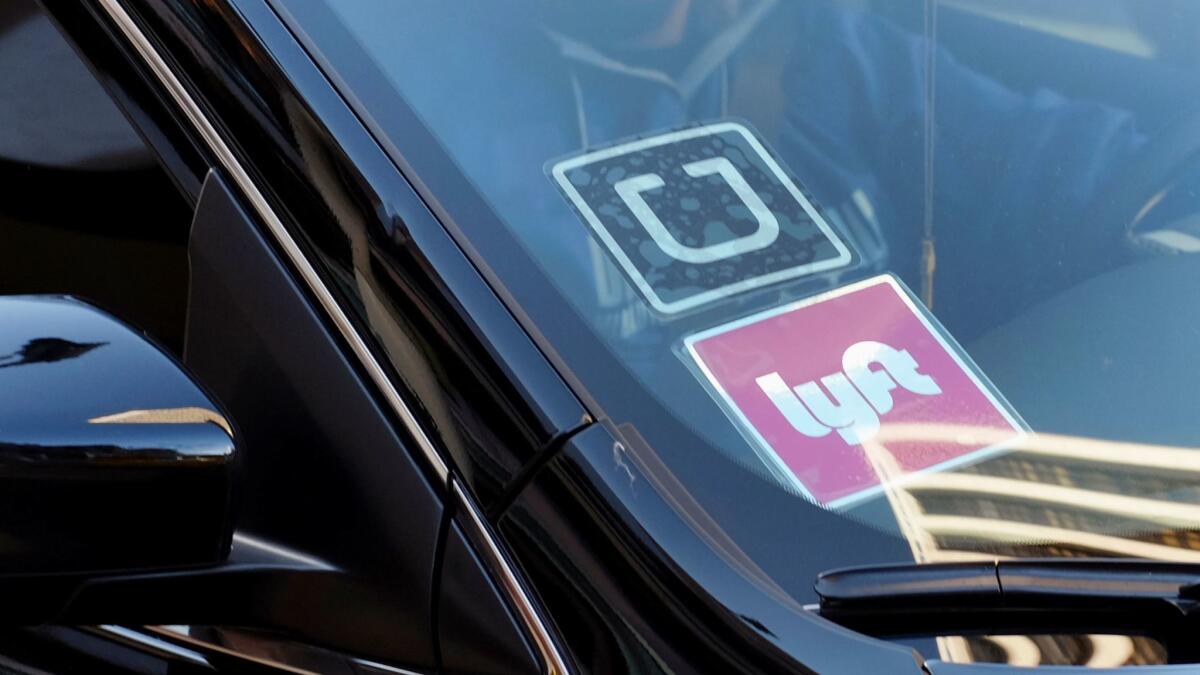Uber has a department that spies on its rivals — and it’s not alone

How far would you go to figure out what the competition is up to?
Test out their products and services to see how they work? Hire away their staff to learn their tricks? Monitor their job listings to glean insight about upcoming initiatives?
Such tactics are par for the course in the technology industry, where companies go to great lengths to size up their competition. The latest example is Uber, which according to a New York Times report employs what it calls a “competitive intelligence” team to study its rivals. That team bought anonymized data — including information on Lyft receipts gleaned from customer inboxes — from analytics firm Slice Intelligence.
Although both companies faced criticism over their practices — Slice for obtaining the data and Uber for buying it — business and market intelligence experts weren’t surprised by their efforts.
Everyone does it (to some degree)
Competitive intelligence has been around for as long as corporations have, according to Chris Robson, the senior vice president of research science at ORC International. At its most basic level, it’s about figuring out what the competition is doing: What are they saying to shareholders and the press? What’s in their publicly available financial documents? What products have they launched?
“For a lot of companies, it’s just one person buried somewhere in the marketing department who every couple of weeks talks to the CEO or produces a report,” Robson said. “But other companies will have bigger groups doing more explicit mining of the information that’s out there.”
Uber isn’t alone in having a competitive intelligence division. Lyft also has its own. And a quick search on job listing services such as Glassdoor and LinkedIn unearths dozens of competitive intelligence roles waiting to be filled at big-name firms such as Amazon as well as smaller start-ups.
Apple CEO Tim Cook reportedly threatened to ban Uber from app store over secret tracking »
It takes many forms
Competitive intelligence exists on a spectrum, Robson said. Setting up a Google alert for a competitor’s name or product counts as doing competitive intelligence. So does scouring a competitor’s job listings.
“When companies publish job ads, they’re actually giving away a lot of information about what they’re doing,” Robson said. “A lot of what people learned about Apple, Uber and Google’s plans for autonomous vehicles came from looking at their job ads.”
In the days before Google alerts, companies would buy reports from business services companies such as Dun & Bradstreet and go through
“I would liken it to walking into a library to do a research project,” said Brian Balow, an attorney at Dawda, Mann, Mulcahy & Sadler, whose practice includes intellectual property law. “You’d have to physically go to these sources, get whatever information you could and try to piece intelligence together.”
Today, in addition to scouring publicly available information, it’s not uncommon for companies to buy data from credit card and analytics firms that have aggregated customer information. In fact, entire companies such as Slice Intelligence have built their business around mining and selling user data to third parties.
But there are ethical gray areas
The biggest change that technology has brought to the table is the ability for companies to drill down deeper into people’s information than anybody ever expected, according to Edward Soule, a professor at Georgetown’s McDonough School of Business. A lot of the rules of the roads on respecting people’s privacy “are being rewritten as we speak,” he said.
“In the case of Uber [and Slice Intelligence], the question on competitive intelligence is going to be how the information was obtained,” Soule said. “Was it done with the consent of the individual?”
Jojo Hedaya, chief executive of the Slice Intelligence-owned Unroll.me, which was responsible for scouring people’s inboxes for data, said in a blog post that the company has "a plain-English Privacy Policy that our users agree they have read and understand before they even sign up" for the service. But he acknowledged that the company may not have been clear enough about what the firm did with users' data.
“While we try our best to be open about our business model, recent customer feedback tells me we weren’t explicit enough,” Hedaya said.
Firms can satisfy a legal requirement by getting customers to check a box indicating that they understand the user agreement, Soule said. But if they don’t take into account a user’s realistic expectations, then they’re “playing with fire.”
“It’s like when iTunes comes out with a new version and you click the user agreement, you have a realistic expectation when you do that that Apple is not going to do anything pernicious to you, that you didn’t just sign away your children,” Soule said.
The source of a company’s competitive intelligence is key, according to Balow, who said companies that are good at it tend to adopt formal guidelines that ensure they don’t cross legal and ethical lines.
One such guideline is keeping track of where information comes from.
Another is ensuring that no terms of use, nondisclosure agreements or privacy policies are violated.
For example, using a competitor’s service to scope out its prices is kosher because the competition probably is expecting it. But paying a product distributor to find out what styles a competing firm will be selling next season or what it plans to stock would cross a line because no company would anticipate that its rivals would gain such access.
Lawsuits and regulation
When competitive intelligence goes too far and a company believes that its trade secrets have been stolen, it can lead to lawsuits, Soule said. But the onus is on the plaintiffs to demonstrate that harm has been caused and to quantify the damages.
One recent example is Waymo’s lawsuit against Uber, in which the Google-owned self-driving-car company accused Uber of hiring a former Waymo employee who took company files with him.
But in lieu of the courts and federal regulators laying down new rules, Soule believes that it will ultimately be consumers who dictate the boundaries.
If, on learning of a company’s practices, consumers decide to stop doing business with them (which is what happened with Slice’s Unroll.me when customers deleted the app from their inboxes), that will send a message that companies cannot ignore.
“When they see the limits being tested and companies getting severely burned, then you’ll start to see a pulling back and a recognition of how far you can go,” Soule said. “That’s how this stuff tends to settle out.”
Twitter: @traceylien
ALSO
Uber's plan to curb bad behavior by passengers: Reveal their ratings
Palantir will pay $1.7 million to settle claims it discriminated against Asians
TeleSign, a Marina del Rey start-up crucial to integrity of popular apps, purchased for $230 million
Inside the business of entertainment
The Wide Shot brings you news, analysis and insights on everything from streaming wars to production — and what it all means for the future.
You may occasionally receive promotional content from the Los Angeles Times.






